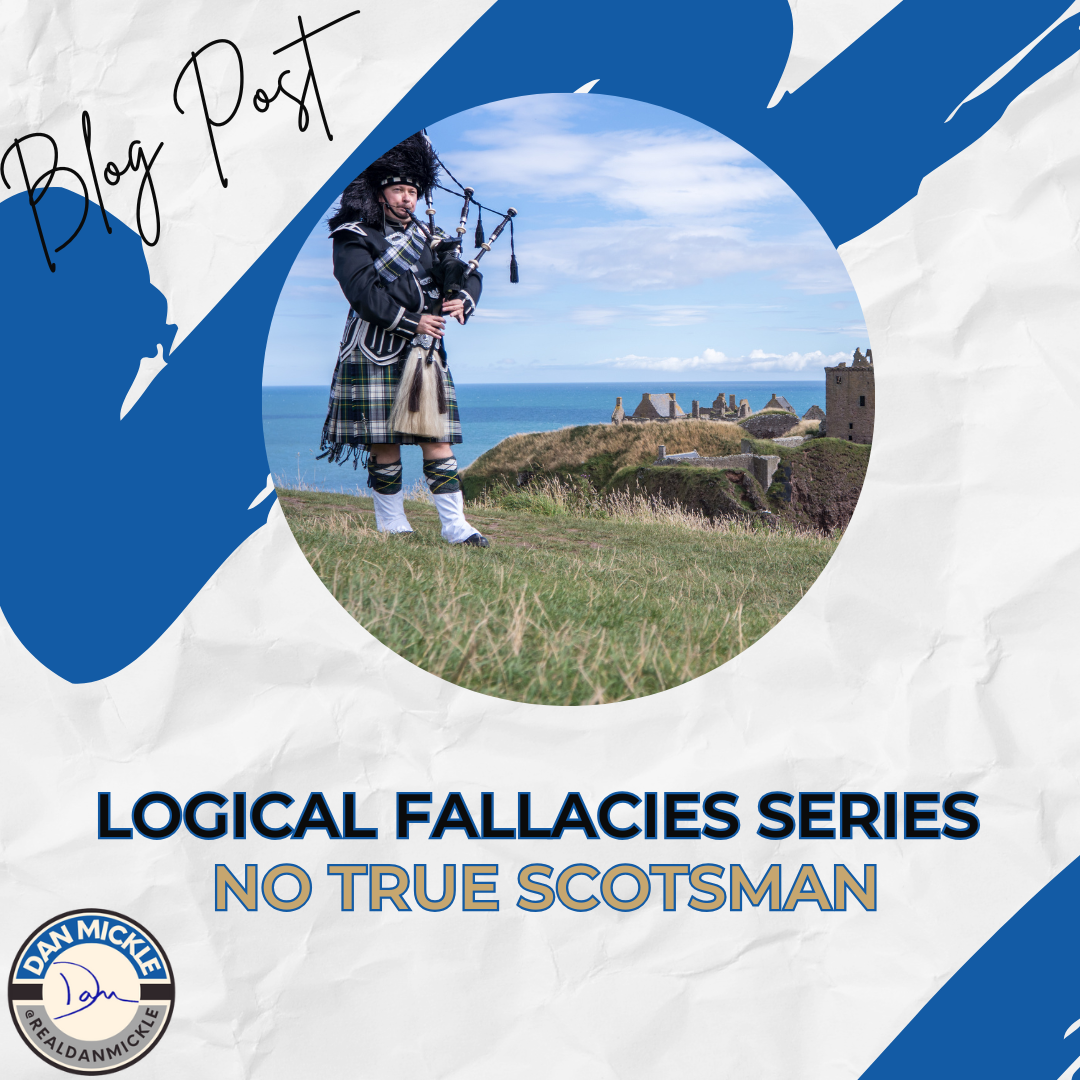I was watching a game the other day, and it hit me…why do we hold onto certain standards so tightly, even if they’re arbitrary? I’m talking about the No True Scotsman fallacy. Imagine this: a parent, after seeing their child’s poor performance in a game, might say, “That’s not how real athletes play.” They’ve just shifted the definition of what it means to be a “real” athlete. Instead of addressing the situation at hand, they change the criteria to make their argument unassailable.
What is the No True Scotsman Fallacy?
The No True Scotsman fallacy happens when someone changes the definition of a group or concept to avoid disproving their argument. For example, someone might say, “No Scotsman puts sugar on his porridge.” When faced with a counterexample, the person might respond, “Well, no true Scotsman puts sugar on his porridge.” This tactic shifts the definition of a “true” Scotsman to dismiss valid counterexamples.
No True Scotsman: How It Appears in Youth Sports
This fallacy often appears in youth sports when coaches, parents, or athletes cling to narrow standards and reject anything that doesn’t fit their view. Here’s how it looks:
-
The Parents’ Perspective
A parent watches their child’s performance and dismisses mistakes, saying, “That’s not how champions act.” They redefine what a champion is, believing only those who perform perfectly meet the standard. This ignores the fact that even the most successful athletes make mistakes and learn from them. -
The Coach’s Perspective
A coach might say, “A real team player never complains about playing time or practice.” When a player expresses frustration, the coach might dismiss it by claiming that player isn’t a “true” team player. This rigid view overlooks the complexities of team dynamics and dismisses legitimate feelings. -
The Athlete’s Perspective
After not making the varsity team, an athlete might think, “True athletes don’t get discouraged like this. Maybe I’m just not cut out for the sport.” They’ve redefined what it means to be a “true” athlete. Any struggle becomes an excuse to quit. This mindset ignores the fact that all athletes face challenges and setbacks—and those are the moments that help them grow.
No True Scotsman: How to Fix It
To avoid the No True Scotsman fallacy, we need a broader definition of success in youth sports. Growth, learning, and resilience are all part of being a true athlete, coach, or parent. Here’s how to make this shift:
-
For Coaches
Reframe the definition of a “team player” to include those who support each other, learn from setbacks, and keep improving. A true team player contributes positively, even when things don’t go perfectly. -
For Parents
Understand that champions are made not only by winning but by handling mistakes and challenges. Encourage your child to embrace failure as part of the journey, rather than seeing it as a sign of weakness. -
For Athletes
True athletes aren’t defined by perfection but by how they respond to challenges. Every setback is an opportunity to learn and improve. Don’t let a tough experience convince you that you’re not “cut out” for the sport.
Conclusion
The No True Scotsman fallacy can limit our understanding and create unrealistic expectations in youth sports. By focusing on growth, effort, and resilience, we can create an environment where athletes thrive, no matter how perfect their performances are.
But don’t go just yet! In our next post, we’ll explore the Begging the Question fallacy. This sneaky fallacy happens when an argument’s conclusion is assumed in the premise. It’s more common than you think, especially in discussions about team decisions or performance expectations. Stay tuned to learn how to avoid this pitfall!


